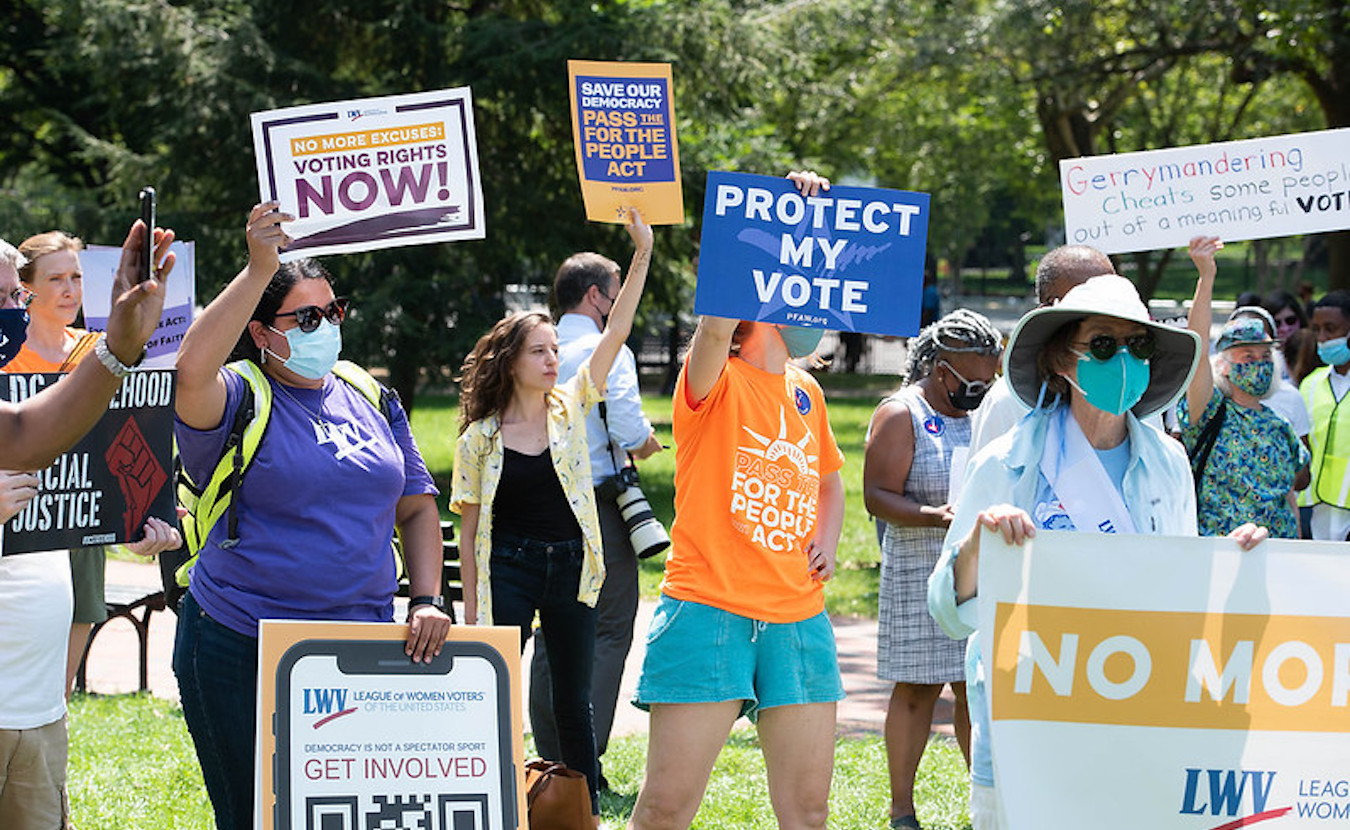[Publisher’s note: This article by Julia Vaughn was first published by Indiana Capital Chronicle, “an independent, nonprofit news organization dedicated to giving Hoosiers a comprehensive look inside state government, policy and elections.” With permission, Limestone Post is reprinting the article as part of our coverage on Democracy Day. You can learn more about Democracy Day, and find more of our coverage, at the end of this article.]
It’s been quite a year for the U.S. Supreme Court. Whether it’s leaks of draft decisions, ethics-related scandals and calls for investigations, undermining efforts to curb climate change, or overturning years of legal precedence to take away abortion rights, the result is a public distrustful of the judicial process.
A recent Gallup Poll bears this out; only 25 percent of respondents said they had confidence in the Supreme Court, a historic low.
Think there’s no way they could do even more damage? Think again. The court is prepared to hear Moore v. Harper later this year, an important case that could upend how elections are conducted across the country. It’s the culmination of a ten-year effort by conservative lawmakers across the country to delegitimize the courts and erode the power of other branches of government. Through this case, they hope to make it easier to gerrymander, suppress the vote, and challenge election results.
The centerpiece of the case is a fringe legal theory called the “independent state legislature theory” which first surfaced in 2000 during the Bush v. Gore litigation. Chief Justice William Rehnquist wrote a concurring opinion in that case promoting a theory that relies on an extremely narrow interpretation of the term “state legislature” in the Elections Clause and the Presidential Electors Clause of the U.S. Constitution. Traditionally, courts have interpreted the term broadly, saying it includes not only the legislative body of a state government but the governor and courts as well.
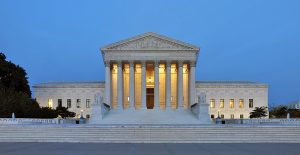
In the case “Moore v. Harper,” the Supreme Court will consider a fringe legal theory called
“independent state legislature theory,” which relies on an extremely narrow interpretation of the term “state legislature” in the Elections Clause and the Presidential Electors Clause of the U.S. Constitution. | Photo by Joe Ravi, CC BY-SA 3.0 , via Wikimedia Commons
For more than a decade Rehnquist’s theory stayed where it belongs — in the halls of academia — but in 2015 opponents of Arizona’s citizens redistricting commission employed it in their Supreme Court challenge. In that case, a big win for redistricting reformers, SCOTUS said legislature means the entire legislative process, not just the state legislature itself.
More recently, former President Donald Trump and his allies tried to use the theory to overturn the results of the 2020 presidential election. Although most of the court declined to embrace it, three members — Clarence Thomas, Samuel Alito, and Neil Gorsuch — endorsed it.
The theory’s latest journey to the Supreme Court comes courtesy of the North Carolina state legislature, which used it in a bold attempt to dodge a landmark state court ruling that struck down their gerrymandered voting maps in a case brought by Common Cause North Carolina.
The case, Moore v. Harper, is dangerous because it would change how we’ve run elections in the United States for more than 200 years. It would give state legislatures unchecked power in setting election policies, rendering the executive branch and state courts powerless to intervene when partisan lawmakers enact laws to suppress the vote. As voting laws become increasingly weaponized by lawmakers seeking to gain electoral advantage, the last thing voting rights advocates need is fewer options to hold them accountable.
That’s particularly true in states like Indiana, where gerrymandered districts and an entrenched supermajority already make holding the General Assembly accountable extremely difficult. Although the Indiana Constitution says we are to have a government of, by, and for the people, currently it’s more a government of, by, and for the General Assembly. Giving them more unchecked power is a horrifying idea.
At Common Cause, we’re hopeful the U.S. Supreme Court will see this desperate attempt to undermine voting rights for what it is and render a decision that maintains the status quo. Doing otherwise would mean the court is contradicting itself. Just three years ago, in Rucho v. Common Cause, the Supreme Court pointed to state courts as the ones who should decide if partisan gerrymandering is permissible.
Only 25 percent of Americans have confidence in the Supreme Court.
—Gallup Poll, June 2022
Of course, our hope is tempered by the recognition that this court has consistently rendered decisions that have ultimately undermined democracy, reversing decades of work by prior courts to uphold and protect the right to vote. A recent report by the Campaign Legal Center outlines the recent sad history on voting rights.
The principle of checks and balances is basic to a healthy functioning government. The Indiana General Assembly has shown us numerous times they are prone to power grabbing, most recently in their legal scuffle with Gov. Eric Holcomb over who can call a special session. Stay tuned to see if the Supreme Court gives them even more weight to throw around.
Indiana Capital Chronicle is part of States Newsroom, a network of news bureaus supported by grants and a coalition of donors as a 501c(3) public charity. Indiana Capital Chronicle maintains editorial independence. Contact Editor Niki Kelly for questions: [email protected]. Follow Indiana Capital Chronicle on Facebook and Twitter.

Democracy Day
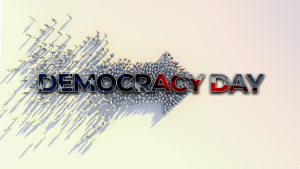 Limestone Post is participating in Democracy Day, September 15 , a nationwide collaborative of news outlets that are reporting on threats democracy is facing in the U.S. — at the local, state, and national levels. The goal of Democracy Day, which coincides with the United Nations’ International Day of Democracy, is to draw attention to this crisis and provide citizens with the context and information they need to fight ongoing anti-democratic actions and policies.
Limestone Post is participating in Democracy Day, September 15 , a nationwide collaborative of news outlets that are reporting on threats democracy is facing in the U.S. — at the local, state, and national levels. The goal of Democracy Day, which coincides with the United Nations’ International Day of Democracy, is to draw attention to this crisis and provide citizens with the context and information they need to fight ongoing anti-democratic actions and policies.
This series also supports Limestone Post’s focus on solutions journalism: rigorous, evidence-based reporting that looks at efforts to solve problems. Solutions journalism does not just report on problems; rather, it focuses on how people are responding to problems. And it ensures readers have access to the information and tools needed to build an equitable and sustainable community.
Read more of Limestone Post’s coverage for Democracy Day:

Indiana Legislature Violates Principle of ‘Free and Equal’ Elections
by Jim Allison
Retired IU Professor Emeritus Jim Allison shows how the Indiana legislature, by means of partisan gerrymandering, has violated the democratic principle of one person, one vote. Proportional representation, he says, would help to give Hoosiers “free and fair” elections, as required by the state constitution. This article is part of Limestone Post’s coverage for Democracy Day, a nationwide collaborative. Click here to read the article.
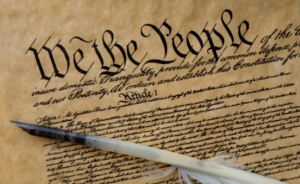 Sheila Kennedy: Civic Literacy Is ‘Critical’ to a Functioning Democracy
Sheila Kennedy: Civic Literacy Is ‘Critical’ to a Functioning Democracy
by Sheila Suess Kennedy
Sheila Suess Kennedy, Emerita Professor of Law and Public Policy, says that when people don’t understand the most basic premises of our legal system, our public discourse is impoverished and ultimately unproductive. “Unfortunately,” she writes, “that civic knowledge is in very short supply.” Click here to read the article.
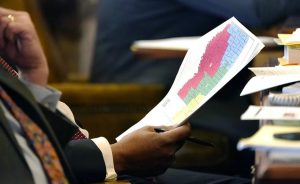 Voting Guide by League of Women Voters of Bloomington-Monroe County
Voting Guide by League of Women Voters of Bloomington-Monroe County
by Debora Shaw
The League of Women Voters of Bloomington-Monroe County has created this quick-reference guide on voter registration, voting by mail, and various voting requirements. This is the first in a series of articles on civic engagement produced by LWV for Limestone Post. Click here to read the guide.
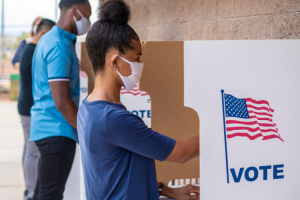 How Redistricting Congressional Districts Can Undermine Majority Rule
How Redistricting Congressional Districts Can Undermine Majority Rule
by Marjorie Hershey
“In a democracy, voters choose their political leaders. In a democracy that permits gerrymandering, elected leaders choose their voters.” Marjorie Hershey, Professor Emeritus of Political Science at Indiana University, wrote this in an article for “The Conversation,” an independent news organization. She has updated the article for Limestone Post. Click here to read her article on redistricting.


